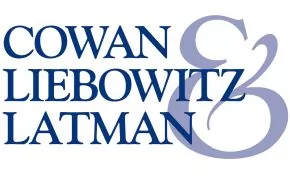In a recent Blog post, we suggested steps you might take in an appropriate case to surmount a blocking mark that consists of a verbal element identical or similar to your proposed mark, but for different goods or services that seem unrelated to yours.
In an opposition presenting just this situation, such steps led to a successful outcome, where the Trademark Trial and Appeal Board (TTAB) accepted Applicant's amendments both to its application and the Opposer's registration.

Applicant Stratio Automotive Inc. filed an intent to use application to register STRATIO in combination with a circular design for Class 9 goods including "software for measuring, detecting and monitoring of automotive performance." Opposer asserted a likelihood of confusion with its registered mark STRATIO (in block letters) for goods in the same class including "software for [the] generation of reports of data and information."
This application also claimed coverage for Class 42 services including "information and consultancy services relating to vehicle repair." Opposer's registration coverage extended to Class 42 services for "data mining."
Applicant argued that confusion was unlikely, because it offered a real-time predictive fleet maintenance platform for vehicle fleet managers, in contrast to Opposer's "backend" big data processing goods and services used in any industry. However, there was evidence that consumers could encounter both parties' goods and services in technology-focused channels of trade.
The TTAB held that the design element in Applicant's mark was not strong enough to distinguish the marks from each other, and that Opposer's goods and services (in part) were broad enough to encompass data and information related to automotive performance or vehicle repair. Accordingly, the respective identifications were found legally identical in part, which weighed heavily in favor of a likelihood of confusion notwithstanding that both parties dealt with sophisticated consumers.
To overcome the denial of its application in the event the TTAB found a likelihood of confusion, Applicant proposed (1) amendment of its application to delete any claim for software, among other things, and (2) addition of the following exclusionary language to Opposer's identification of goods and services: "none of the foregoing in connection with the repair, diagnosis or maintenance of vehicles."
The TTAB granted Applicant's motion to amend and counterclaim for addition of the exclusion. As a result, the amended registration and application no longer overlapped as to the respective parties' goods and services, the opposition was dismissed, and the application was cleared for registration.
However, since Opposer had not consented to Applicant's deletion of goods, the TTAB issued a judgment against Applicant as to the deleted goods. Thus, Applicant is barred from reapplying to register STRATIO & Design for computer or downloadable software for measuring, detecting and monitoring automotive performance.
The content of this article is intended to provide a general guide to the subject matter. Specialist advice should be sought about your specific circumstances.

